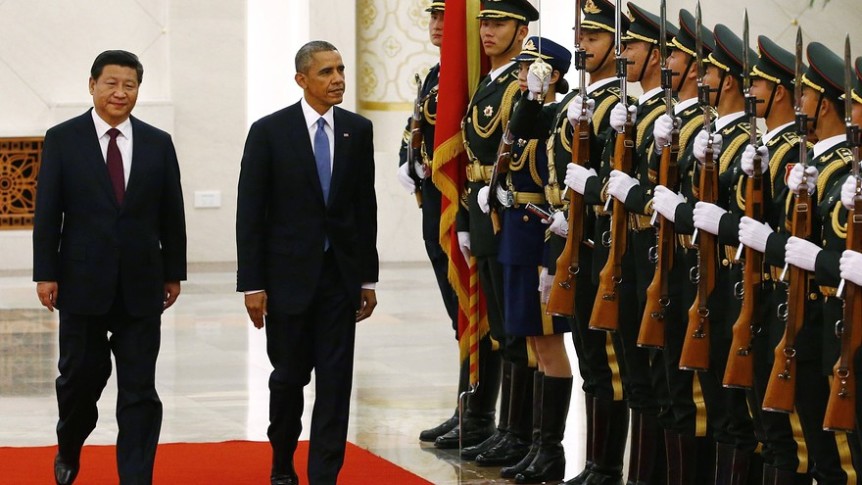U.S., China Make Progress Toward Trade and Investment Deal
U.S. business groups cautiously optimistic over signs of movement
By WILLIAM MAULDIN And MARK MAGNIER
Wall Street Journal
Updated Sept. 25, 2015 6:56 p.m. ET
0 COMMENTS
The U.S. and China made progress this week toward what could someday be a far-ranging trade and investment agreement that would open up closed sectors of China’s economy, U.S. officials said.
In talks connected with Chinese President Xi Jinping’s visit to Washington, senior U.S. officials said they were able to get China to shrink the list of sectors it is seeking to exclude from the framework, known as a bilateral investment treaty, or BIT.
“We agreed to step up our work toward a high-standard bilateral investment treaty that would help level the playing field for American companies,” President Barack Obama said.
China took a variety of moves to open up its economy when it entered the World Trade Organization in 2001, but many U.S. politicians and business groups have long complained that Beijing should take much deeper steps. China isn’t included in a group of 12 Pacific countries seeking to finish a major trade agreement, the Trans-Pacific Partnership, next week in Atlanta.
Mr. Obama and Mr. Xi on Friday reaffirmed their commitment to the investment treaty as a “top economic priority,” the White House said in a statement.
U.S. business groups operating in China expressed cautious optimism over signs of movement in the BIT, which could be stepping stone toward a future free-trade agreement.
James Zimmerman, chairman of the American Chamber of Commerce in China, said he was “pleased that the two sides are making progress” but wants a final deal to materialize soon so that international companies can participate in China’s economic rebalancing.
“We are concerned that anything other than immediate and unfettered market access will allow the Chinese government to continue to pick and choose both the timing and scope of market-access reform, and to limit the role of market forces in China’s economy,” Mr. Zimmerman said.
